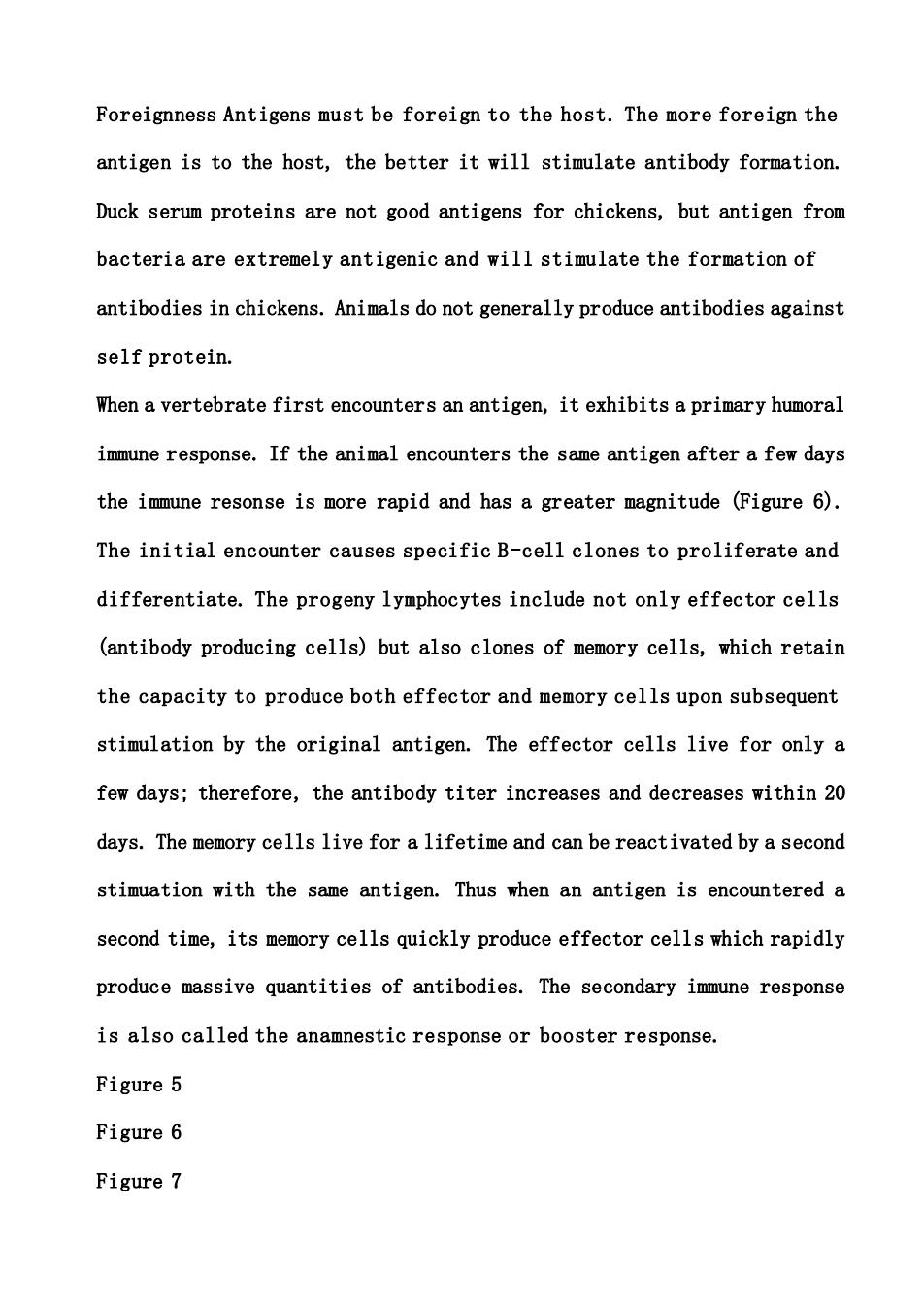正在加载图片...

Foreignness Antigens must be foreign to the host.The more foreign the antigen is to the host,the better it will stimulate antibody formation. Duck serum proteins are not good antigens for chickens,but antigen from bacteria are extremely antigenic and will stimulate the formation of antibodies in chickens.Animals do not generally produce antibodies against self protein. When a vertebrate first encounters an antigen,it exhibits a primary humoral immune response.If the animal encounters the same antigen after a few days the immune resonse is more rapid and has a greater magnitude (Figure 6) The initial encounter causes specific B-cell clones to proliferate and differentiate.The progeny lymphocytes include not only effector cells (antibody producing cells)but also clones of memory cells,which retain the capacity to produce both effector and memory cells upon subsequent stimulation by the original antigen.The effector cells live for only a few days;therefore,the antibody titer increases and decreases within 20 days.The memory cells live for a lifetime and can be reactivated by a second stimuation with the same antigen.Thus when an antigen is encountered a second time,its memory cells quickly produce effector cells which rapidly produce massive quantities of antibodies.The secondary immune response is also called the anamnestic response or booster response. Figure 5 Figure 6 Figure 7Foreignness Antigens must be foreign to the host. The more foreign the antigen is to the host, the better it will stimulate antibody formation. Duck serum proteins are not good antigens for chickens, but antigen from bacteria are extremely antigenic and will stimulate the formation of antibodies in chickens. Animals do not generally produce antibodies against self protein. When a vertebrate first encounters an antigen, it exhibits a primary humoral immune response. If the animal encounters the same antigen after a few days the immune resonse is more rapid and has a greater magnitude (Figure 6). The initial encounter causes specific B-cell clones to proliferate and differentiate. The progeny lymphocytes include not only effector cells (antibody producing cells) but also clones of memory cells, which retain the capacity to produce both effector and memory cells upon subsequent stimulation by the original antigen. The effector cells live for only a few days; therefore, the antibody titer increases and decreases within 20 days. The memory cells live for a lifetime and can be reactivated by a second stimuation with the same antigen. Thus when an antigen is encountered a second time, its memory cells quickly produce effector cells which rapidly produce massive quantities of antibodies. The secondary immune response is also called the anamnestic response or booster response. Figure 5 Figure 6 Figure 7